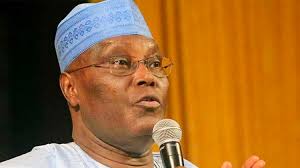Former President Goodluck Jonathan has described the Boko Haram insurgency as one of the most complex and enduring security challenges in Nigeria’s history, warning that military action alone cannot bring the crisis to an end.
Jonathan spoke on Thursday, October 2, 2025, in Abuja at the public presentation of Scars: Nigeria’s Journey and the Boko Haram Conundrum, a book authored by former Chief of Defence Staff, Gen. Lucky Irabor (rtd).
He noted that unlike other crises Nigeria has faced—such as the Niger Delta militancy and ethno-religious violence—the Boko Haram insurgency left deeper scars because of its external support, extremist ideology, and sophisticated weaponry.
“Boko Haram is more complex than what many people imagine. At some point, their fighters had more ammunition than our soldiers, which clearly showed that external groups were deeply involved,” Jonathan said.
The former president recalled that the abduction of the Chibok schoolgirls in 2014 remained one of the most painful scars of his administration, stressing that it cannot be erased from the nation’s collective memory.
Jonathan also recounted his personal engagement with Niger Delta militants while serving as Vice President, explaining that his decision to visit their camps without armed escorts stemmed from his belief that dialogue must complement military efforts.
“In the Niger Delta, I met the militants in their camps. We succeeded in restoring peace not only because of military action but because we engaged them, listened to them, and created opportunities for their communities. That approach worked,” he said.
However, Jonathan emphasised that Boko Haram posed a different and more complex challenge, requiring a broader strategy beyond force of arms.
“We cannot treat Boko Haram simply as a law-and-order problem. It is rooted in poverty, exclusion, and broken dreams. Only a comprehensive approach will deliver lasting peace,” he stated.
He urged Nigeria to adopt a holistic strategy that combines security operations with good governance, poverty reduction, youth empowerment, and social justice, noting that addressing unemployment and social exclusion in vulnerable communities is key to preventing extremist recruitment.




